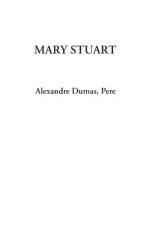That done, and having no hope left of being visited by her confessor, she wrote him this letter:
“I have been tormented all this day on account of my religion, and urged to receive the consolations of a heretic: you will learn, through Bourgoin and the others, that everything they could say on this matter has been useless, that I have faithfully made protestation of the faith in which I wish to die. I requested that you should be allowed to receive my confession and to give me the sacrament, which has been cruelly refused, as well as the removal of my body, and the power to make my will freely; so that I cannot write anything except through their hands, and with the good pleasure of their mistress. For want of seeing you, then, I confess to you my sins in general, as I should have done in particular, begging you, in God’s name, to watch and pray this night with me, for the remission of my sins, and to send me your absolution and forgiveness for all the wrongs I have done you. I shall try to see you in their presence, as they permitted it to my steward; and if it is allowed, before all, and on my knees, I shall ask your blessing. Send me the best prayers you know for this night and for to-morrow morning; for the time is short, and I have not the leisure to write; but be calm, I shall recommend you like the rest of my servants, and your benefices above all will be secured to you. Farewell, for I have not much more time. Send to me in writing everything you can find, best for my salvation, in prayers and exhortations, I send you my last little ring.”
Directly she had written this letter the queen began to make her will, and at a stroke, with her pen running on and almost without lifting it from the paper, she wrote two large sheets, containing several paragraphs, in which no one was forgotten, present as absent, distributing the little she had with scrupulous fairness, and still more according to need than according to service. The executors she chose were: the Duke of Guise, her first cousin; the Archbishop of Glasgow, her ambassador; the Bishop of Ross, her chaplain in chief; and M. du Ruysseau, her chancellor, all four certainly very worthy of the charge, the first from his authority; the two bishops by piety and conscience, and the last by his knowledge of affairs. Her will finished, she wrote this letter to the King of France:
Sir my brother-in-law,—Having, by God’s permission and for my sins, I believe, thrown myself into the arms of this queen, my cousin, where I have had much to endure for more than twenty years, I am by her and by her Parliament finally condemned to death; and having asked for my papers, taken from me, to make my will, I have not been able to obtain anything to serve me, not even permission to write my last wishes freely, nor leave that after my death my body should be transported, as was my dearest desire, into your kingdom, where I had had the honour of being




